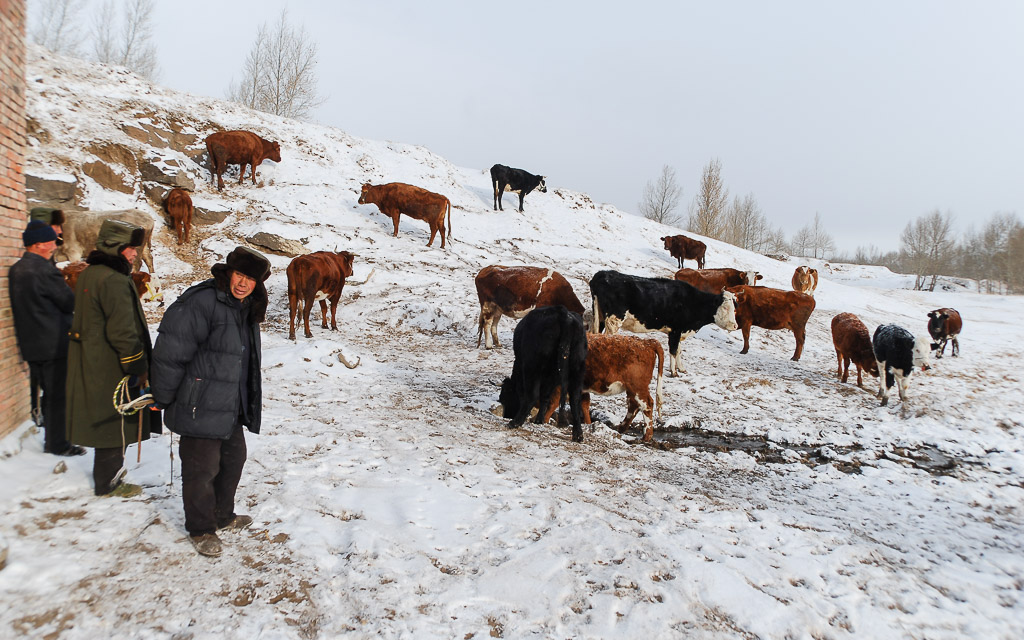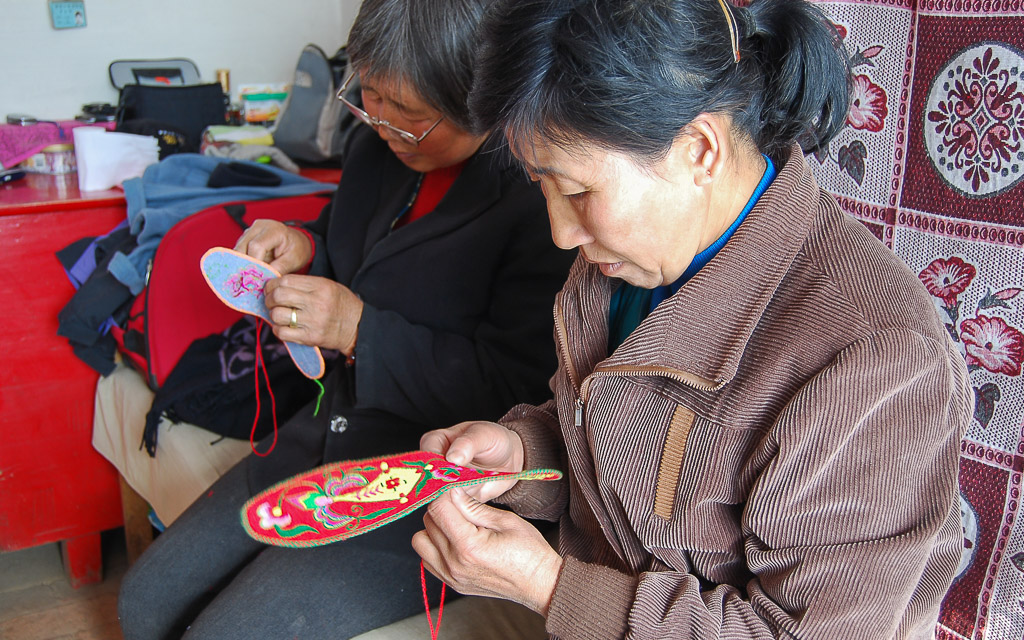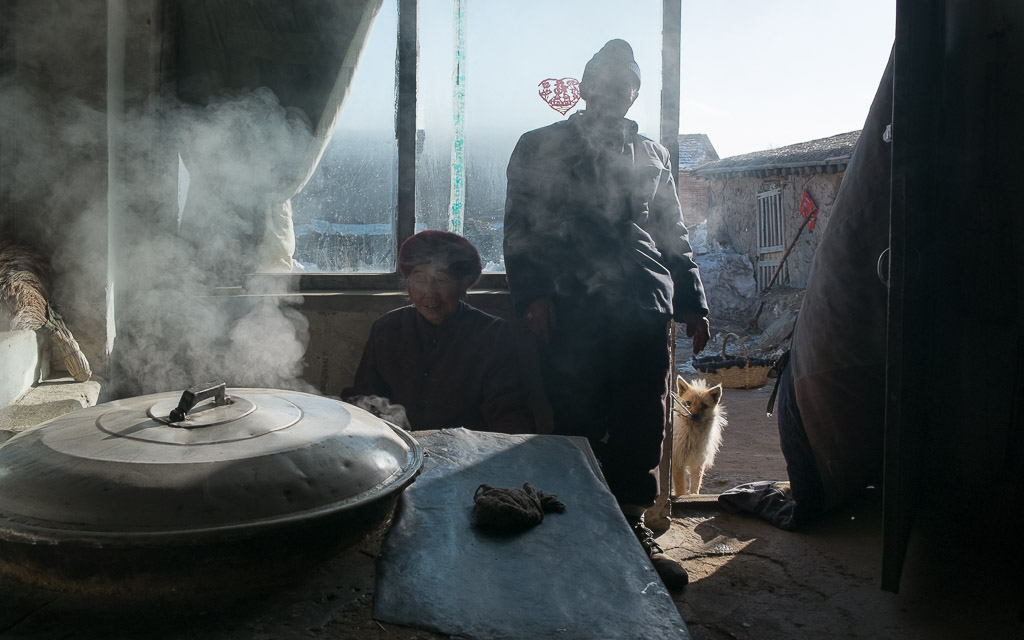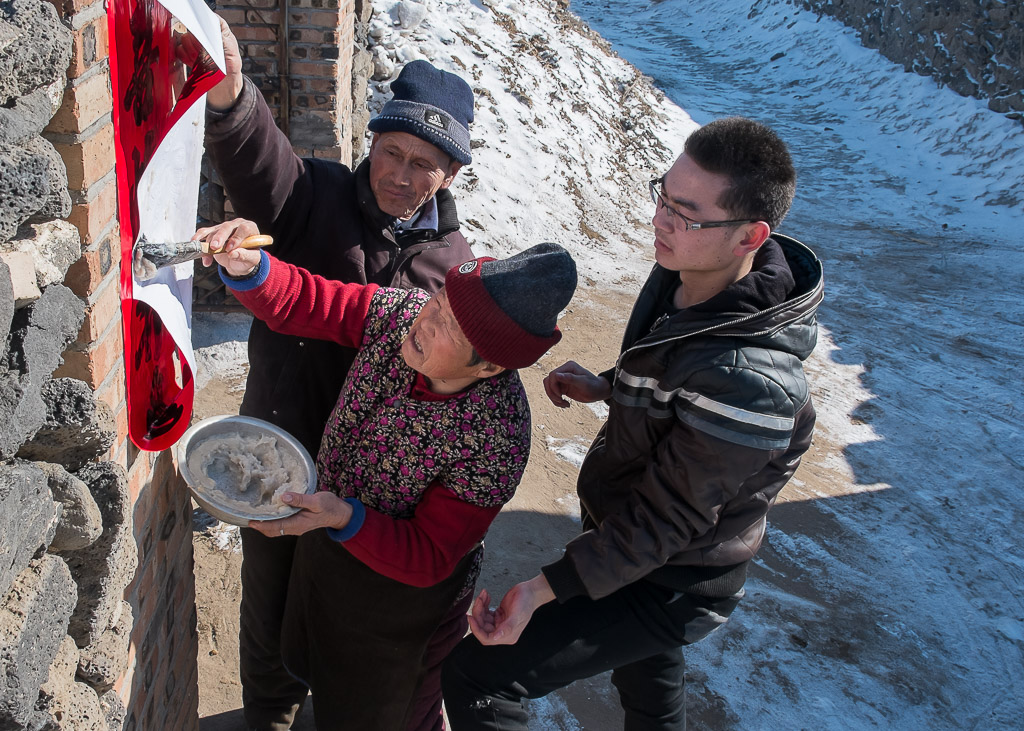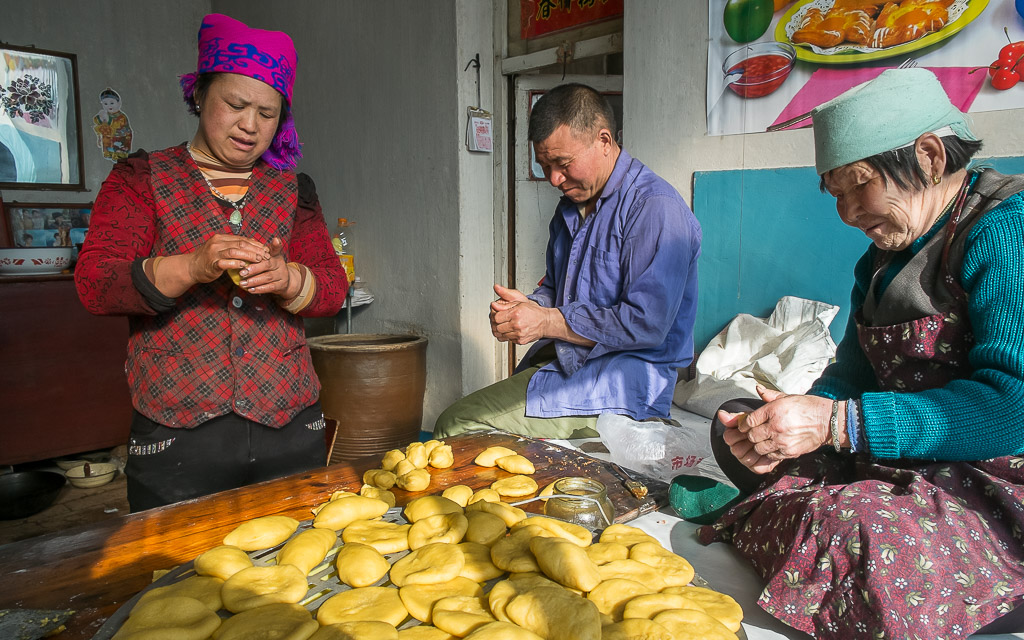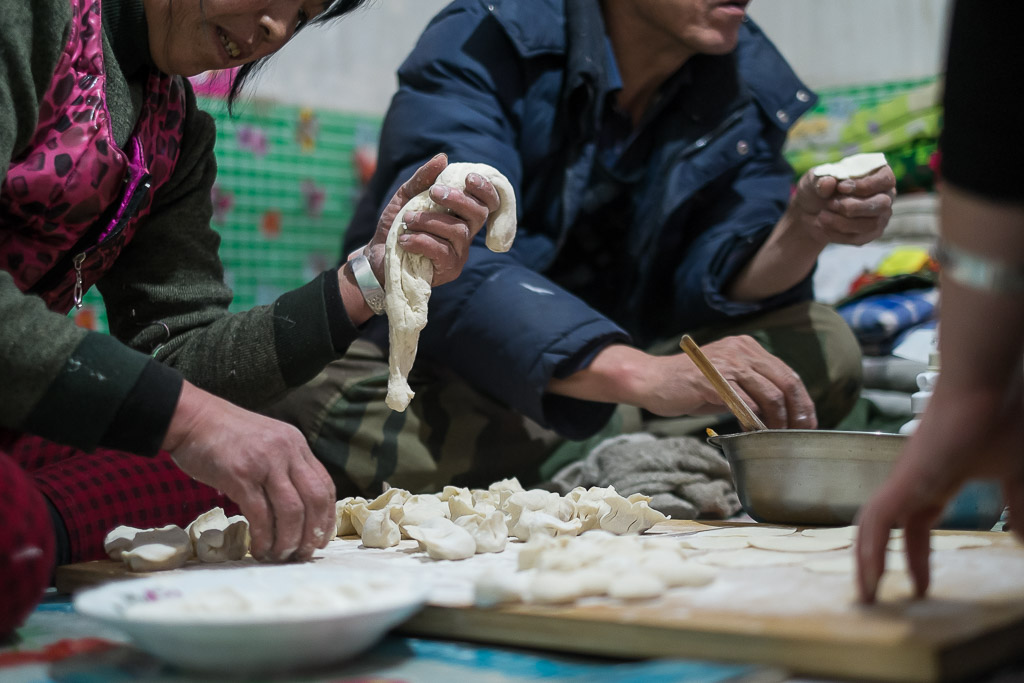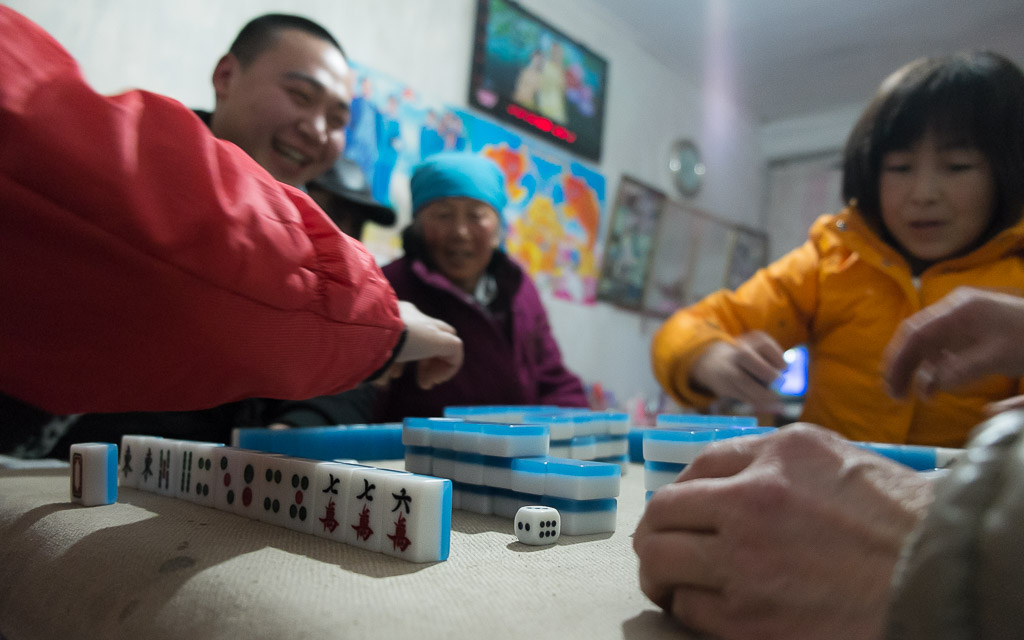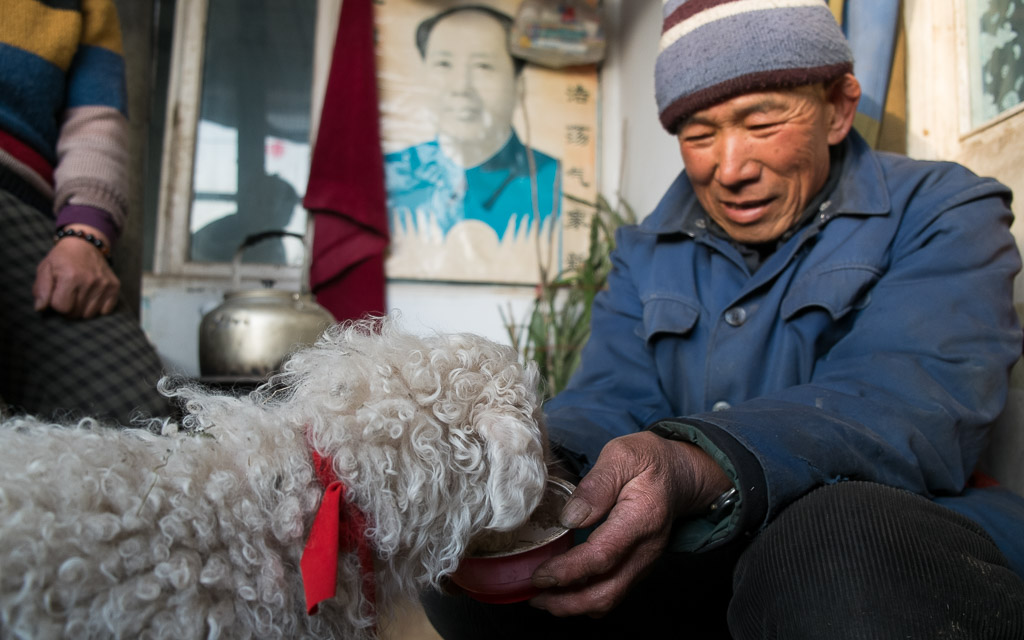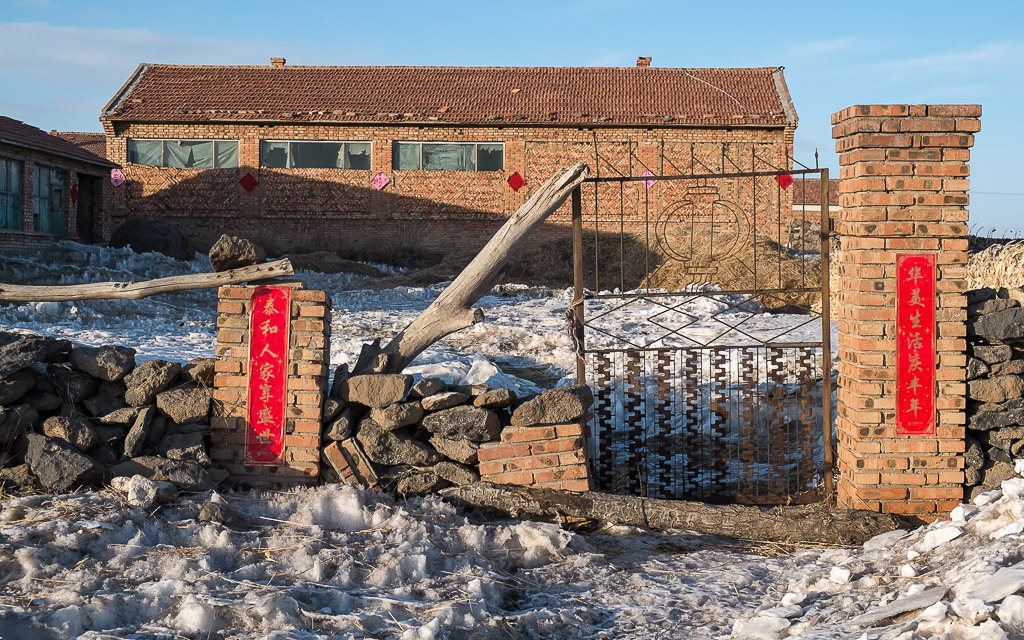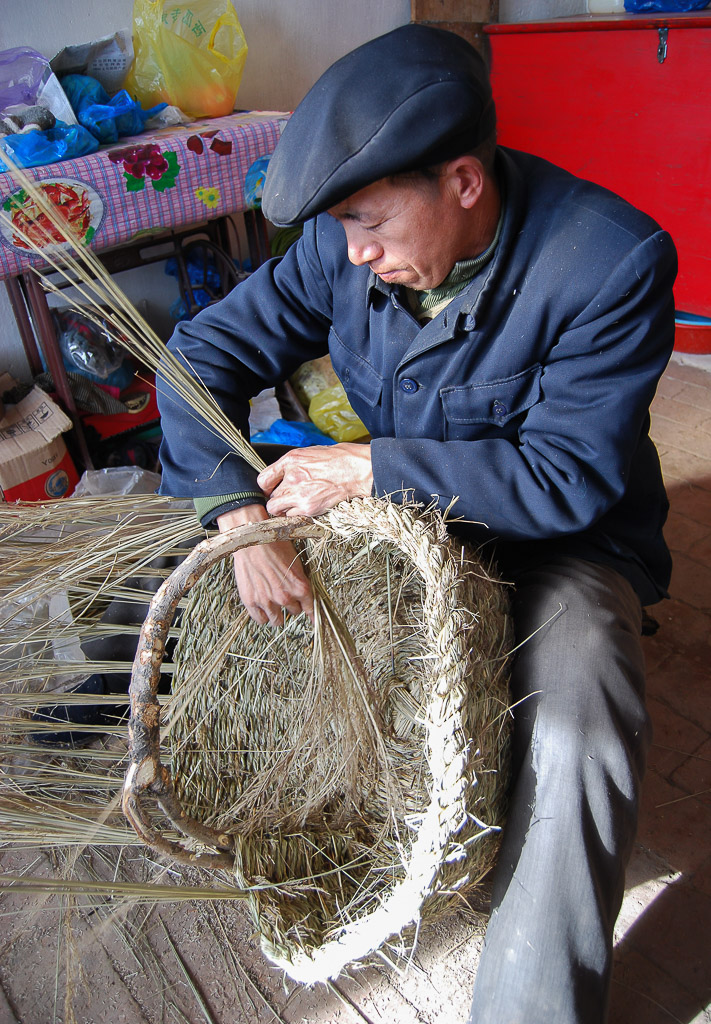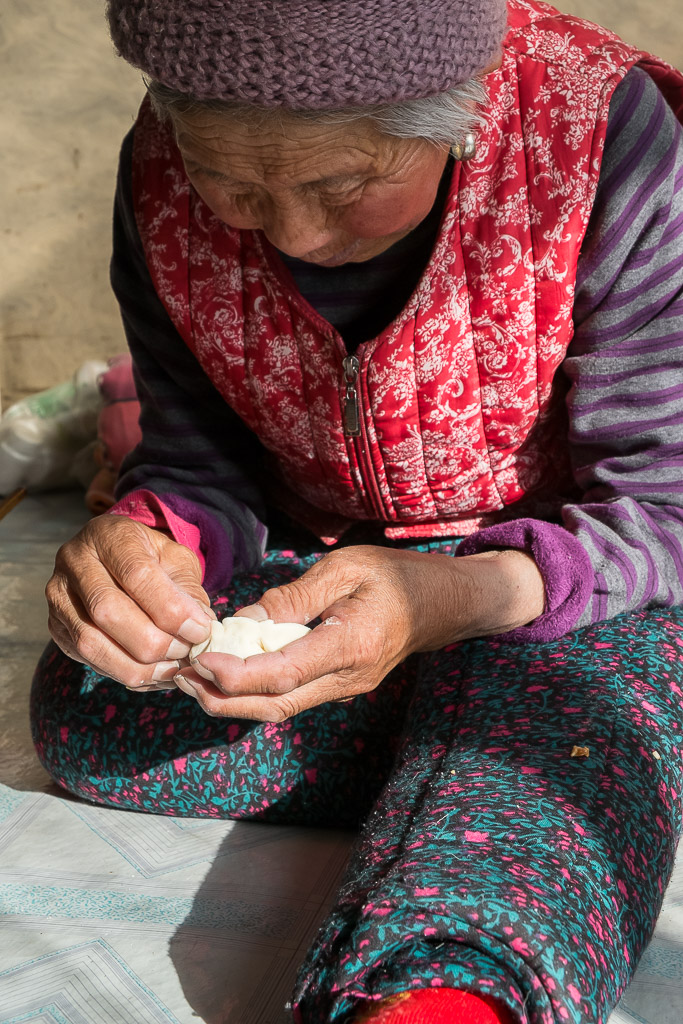
Recording Life
Life in Niujiatan is a life of toil under the sun, in the wind, a life ruled by seasons. Spring and fall are the busy times. If sons can't come home to help plant and harvest, the old couples team up to do the heavy labor. In 2018, two families in the village owned tractors; the rest used cows or donkeys to pull plows and draw carts. Aside from plowing and threshing, everything was done by hand.
Water is the critical issue on the Zhangbei Plateau. The village well went dry in 2004; by 2018 the reservoir was nearly gone. Water for home and livestock is pumped from a natural spring everyday at noon to fill barrels and buckets in the kitchen and yard. When pipes freeze in winter, it’s hauled up the hill in a cart. For their crops, the farmers rely on heaven (靠天). When heaven flows, the larder is full. When heaven withholds, they tighten their belts and hope for a better next year. The last decade has been one drought after the next.
In 2010 wind turbines began to crop up on the hills east and west, sandwiching Niujiatan in the middle. This region of the Zhangbei Plateau has become a wind farm to power the cities of Beijing and Tianjin. Villages do not have access to the generated power.
The images and descriptions below are of Niujiatan before it was torn down in March 2019.
SPRING ~ planting
As the soil warms, work begins. The farmers pull last year’s potatoes from the root cellar and cut them into chunks for seeding. They plow and seed the fields with potatoes, oat, flax, corn, and millet. Sugar beet seedlings are transplanted from under plastic tents.
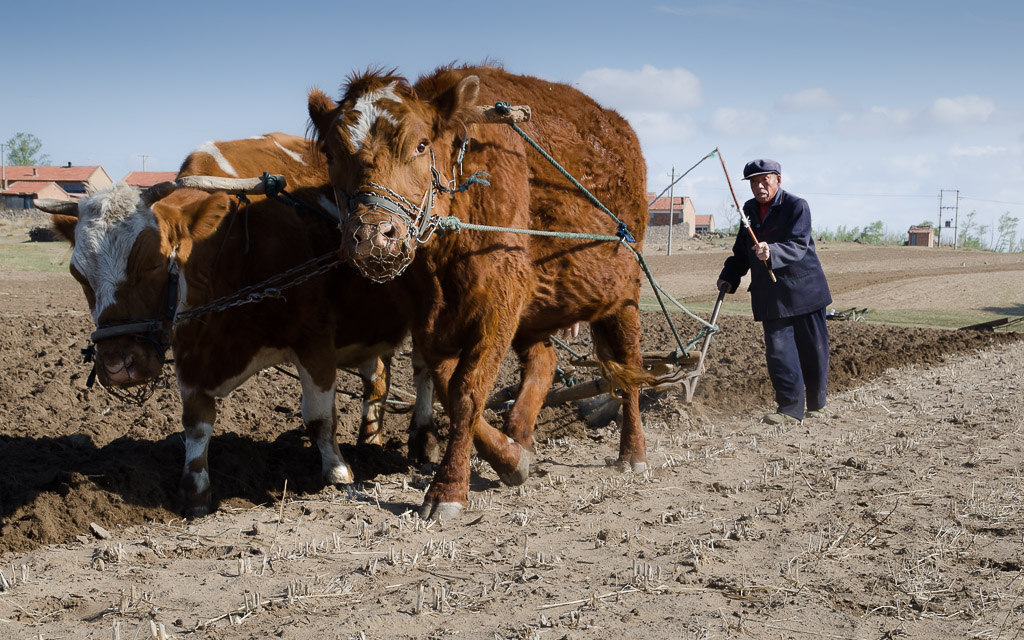
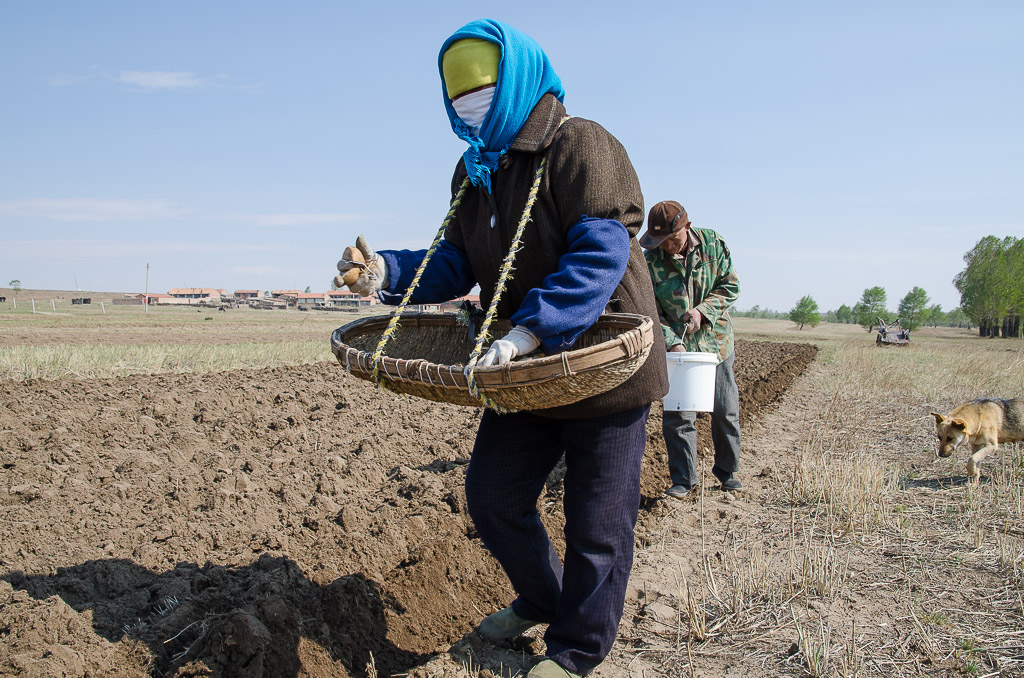
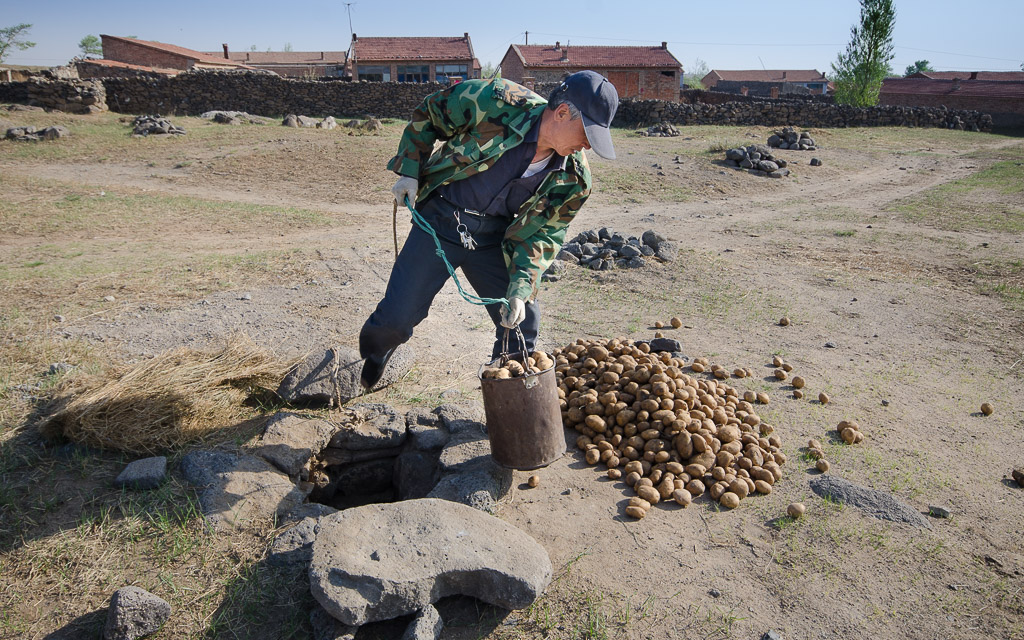
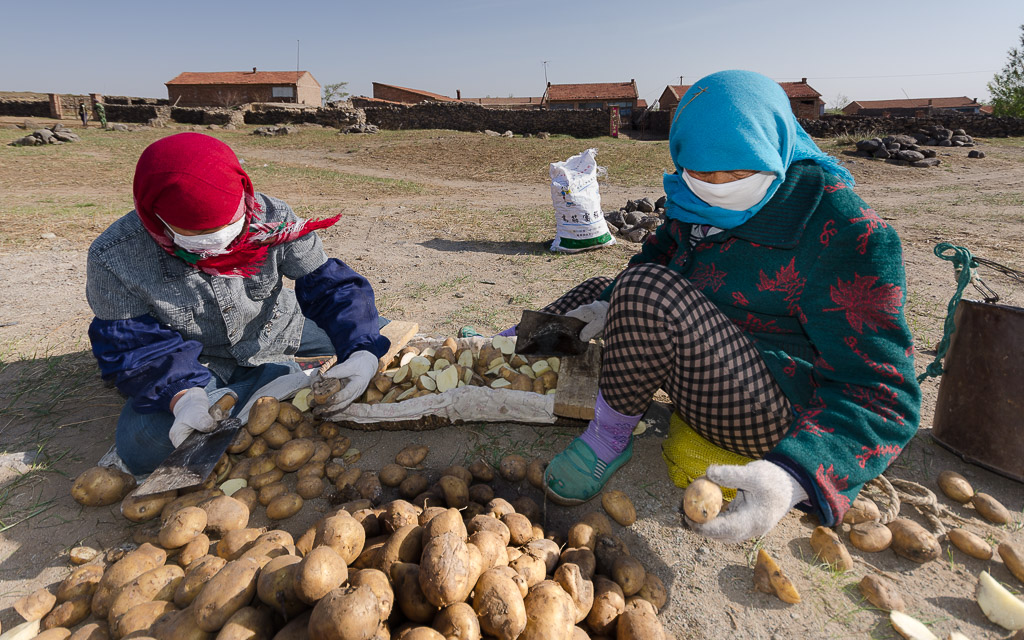
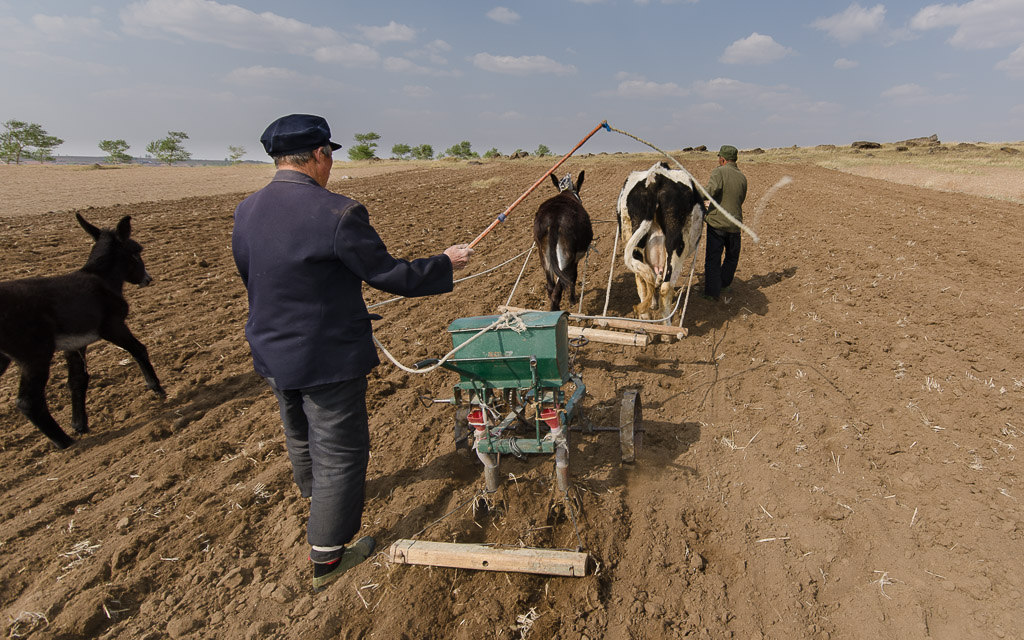
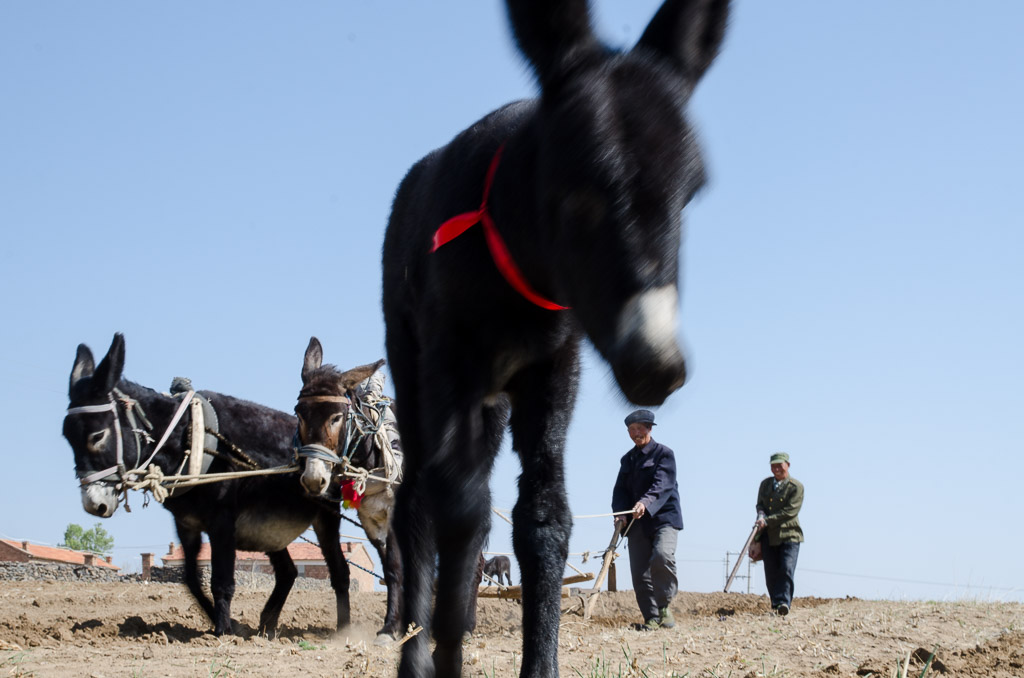
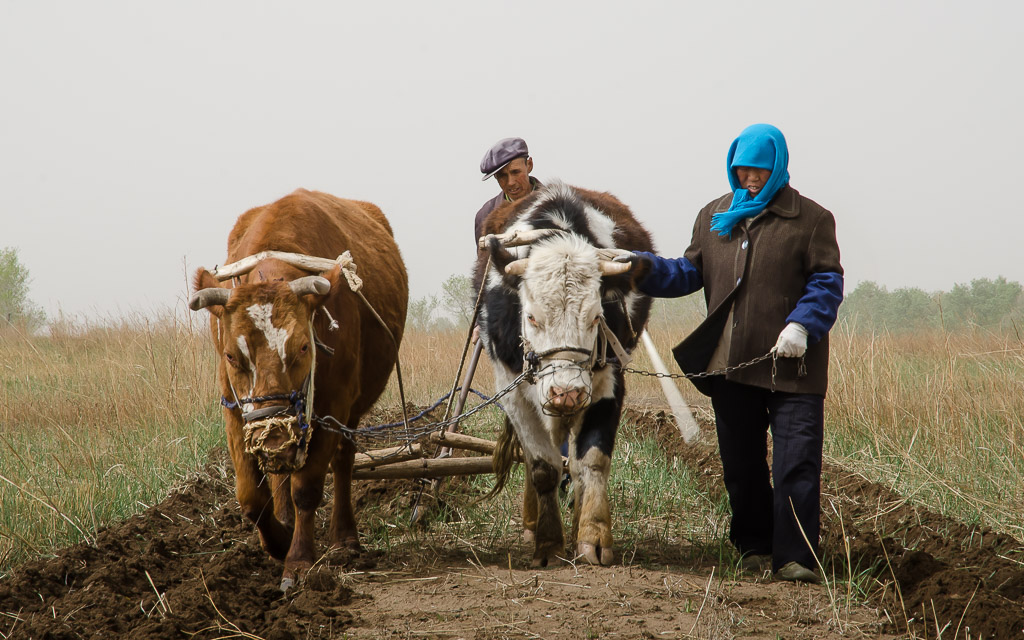
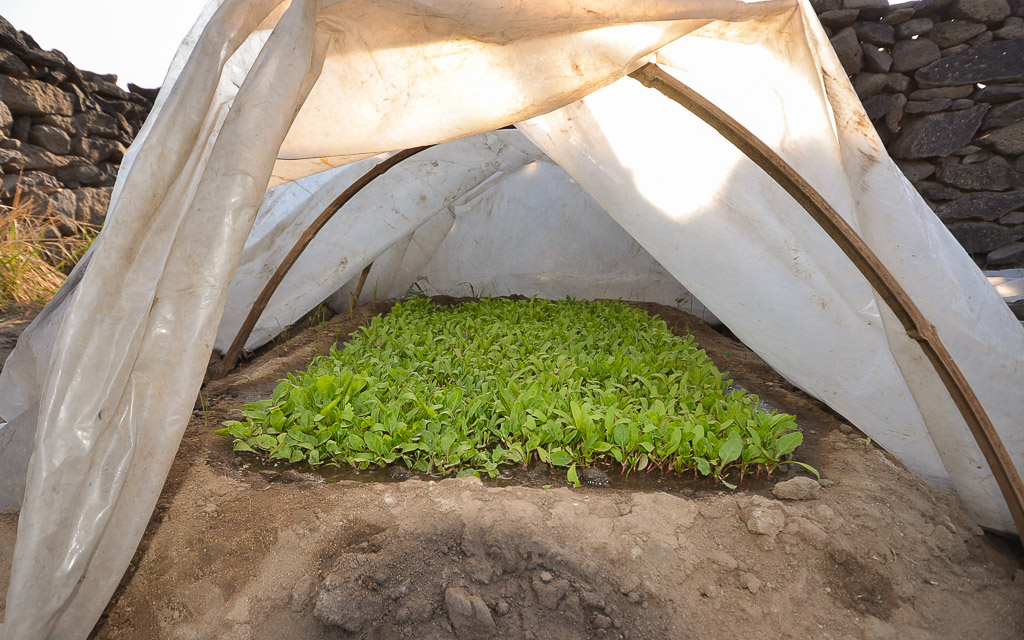
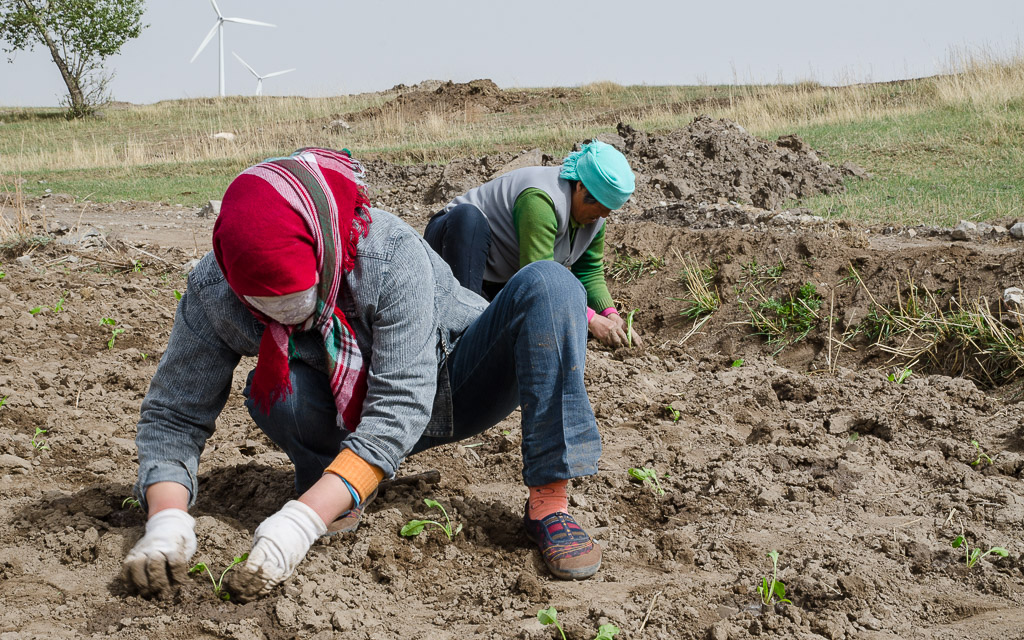
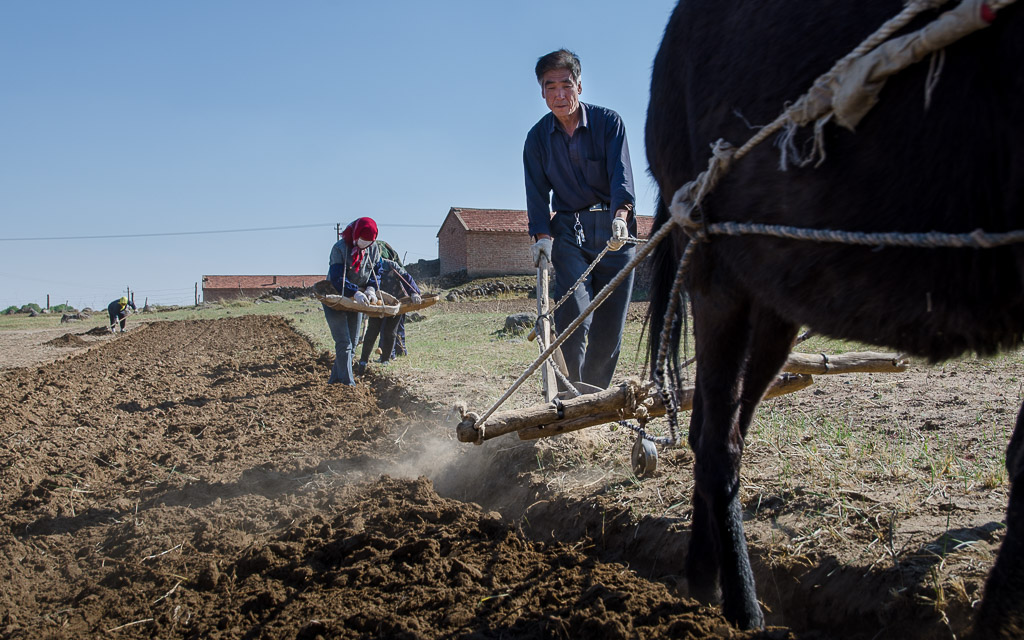
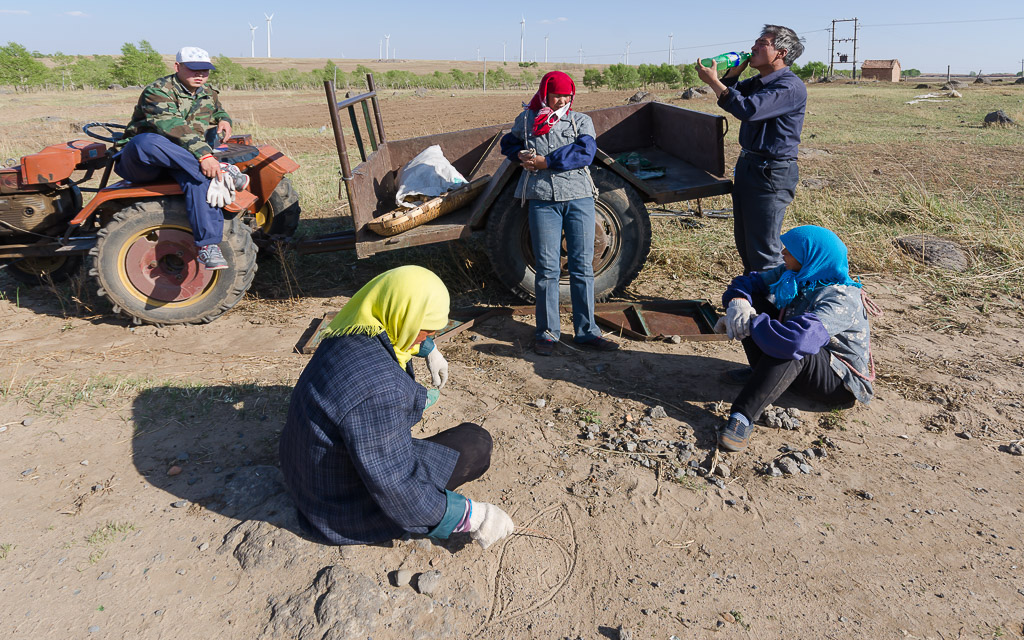
SUMMER ~ HERDing
In summer the grasslands turn lush and green. The cattle are taken out year-round, herded on the hills or tethered near the village, but summer is prime time for grazing. In the fields, it is the time for weeding, fertilizing, and spraying pesticides.

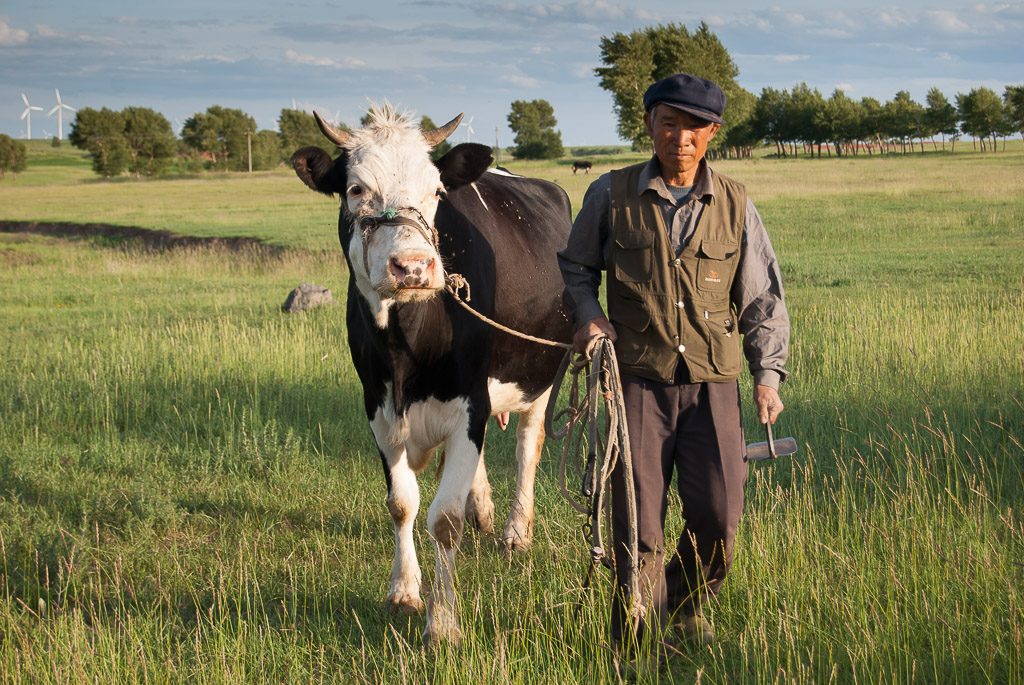

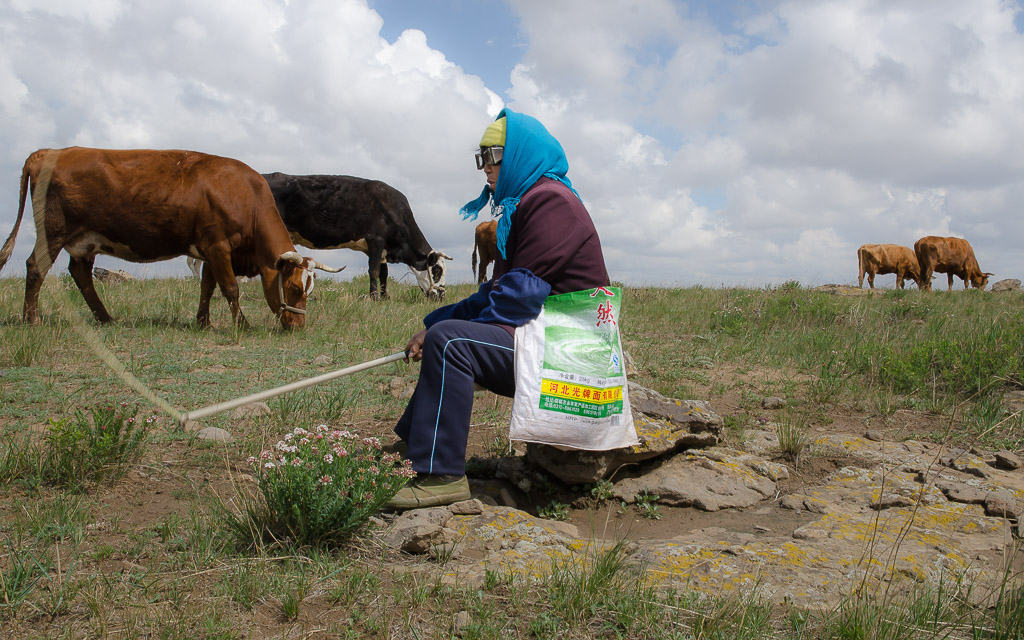

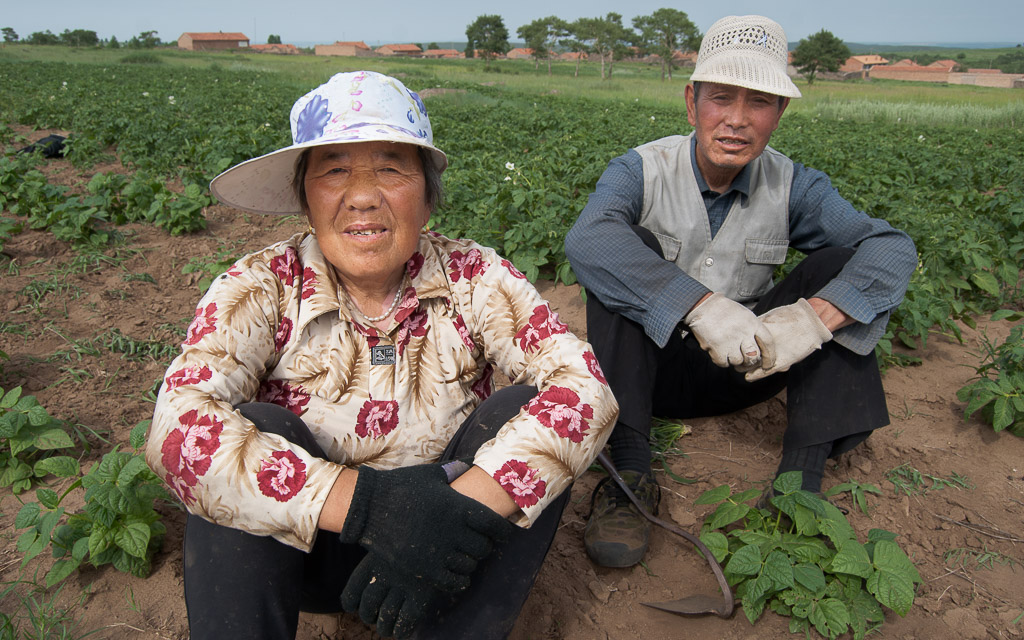
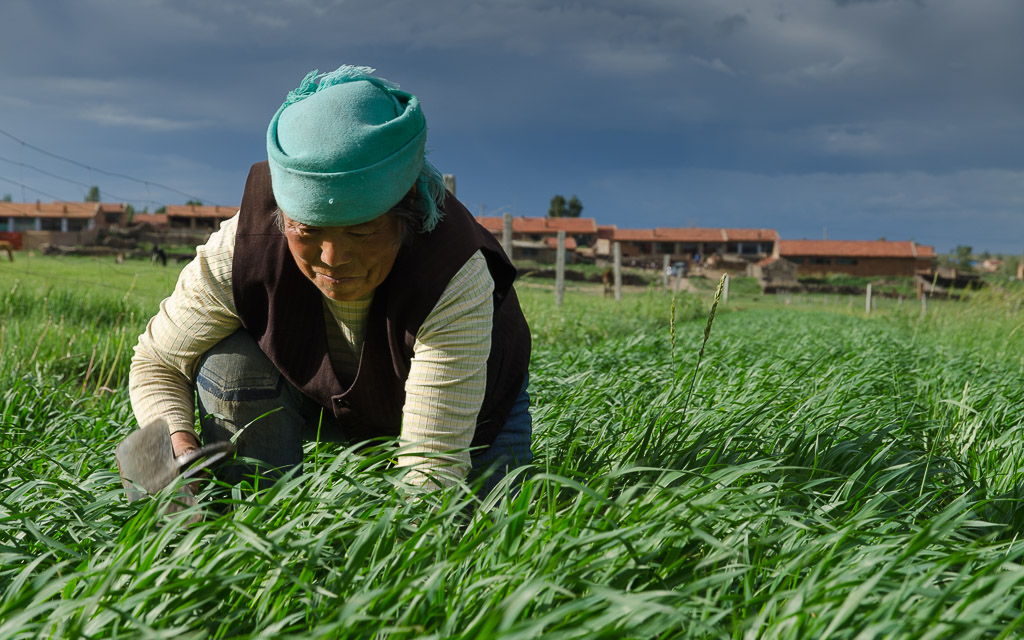

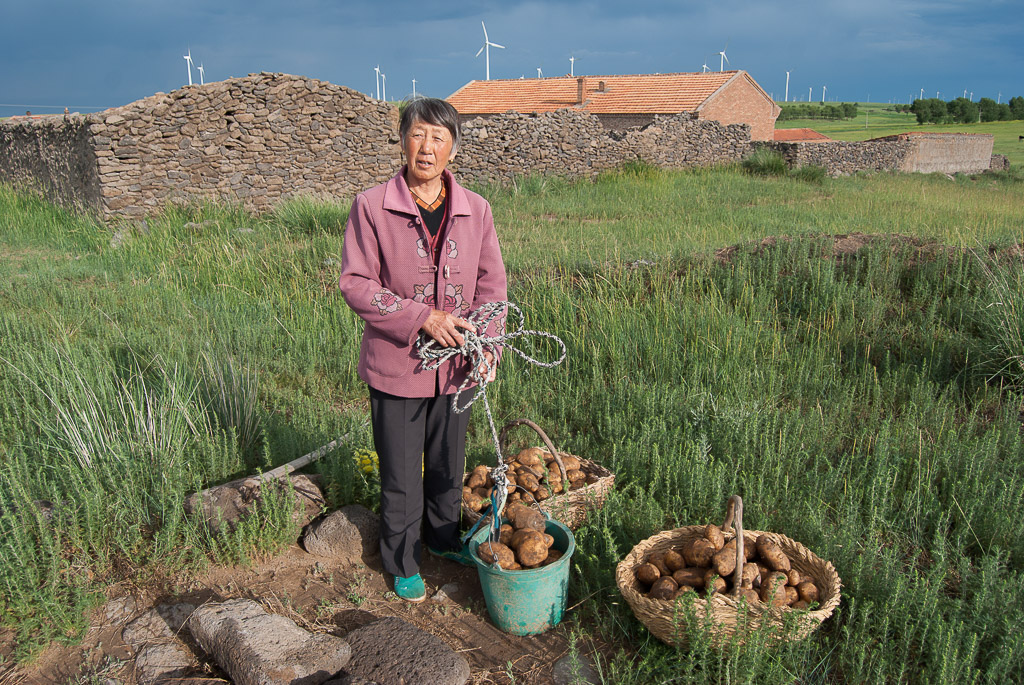

AUTUMN ~ harvesting
When the crops have ripened, work begins. The farmers plow up potatoes and dig up beets. They cut grain, bind sheaves, load carts, build haystacks. Every grain is threshed, winnowed, filtered and bagged. When it is time to thresh the oats, the village becomes a team, moving from home to home to feed the threshing machine, bag the grain and rake the stalks. Flax seed is pressed into oil, oat chaff ground into animal feed, and potatoes pressed into flour. Corn is brought in and stacked for winter, and the busy season ends.
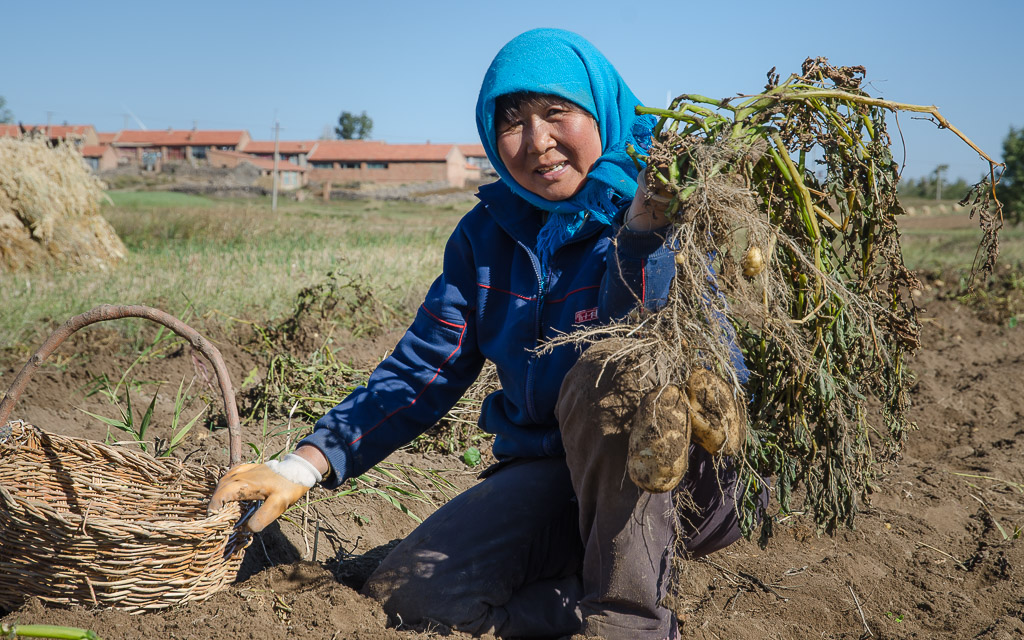
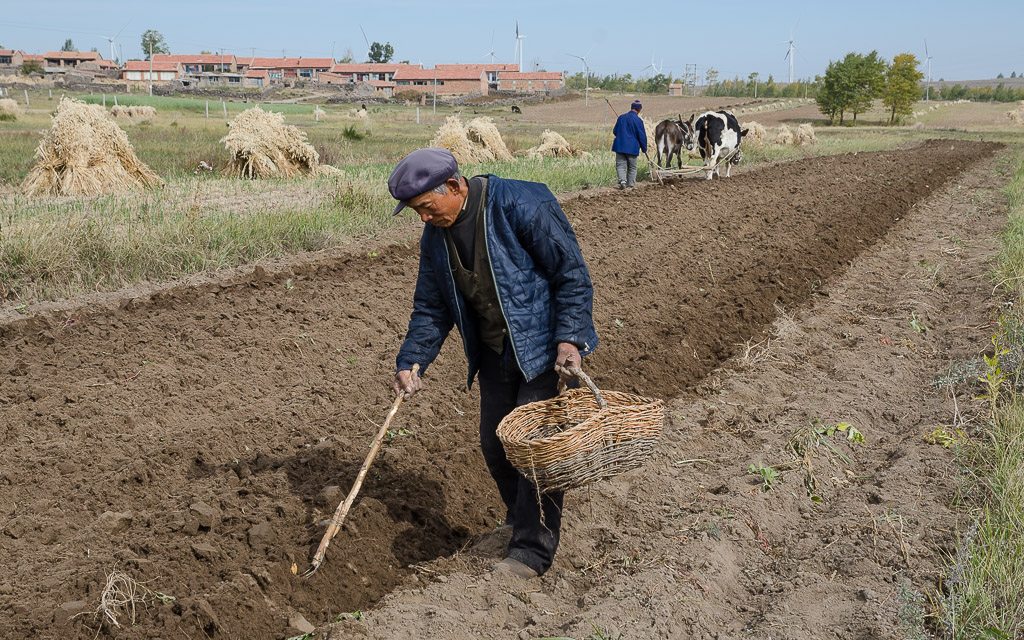
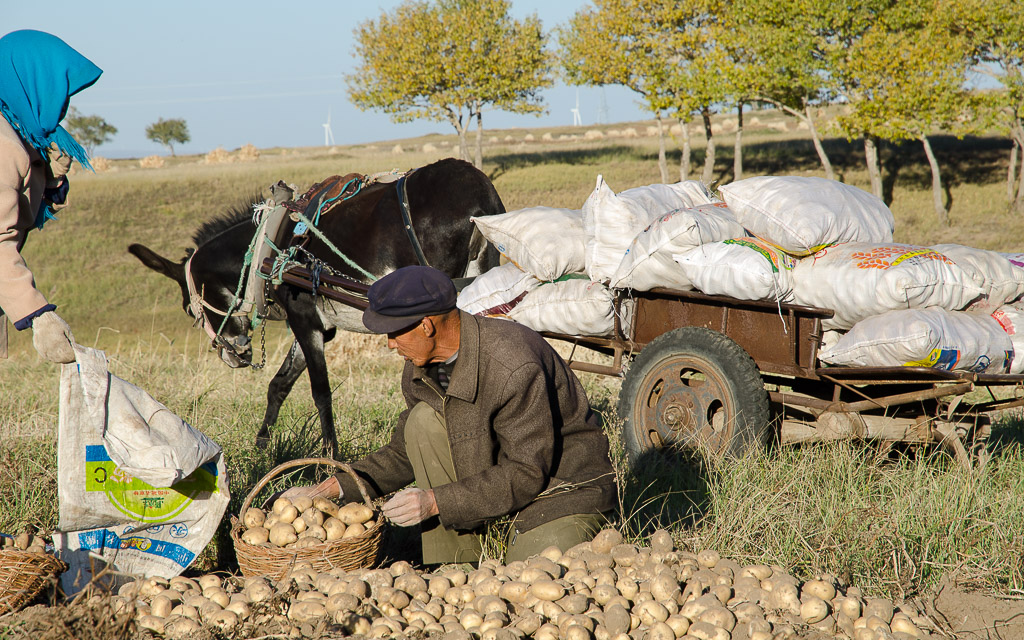
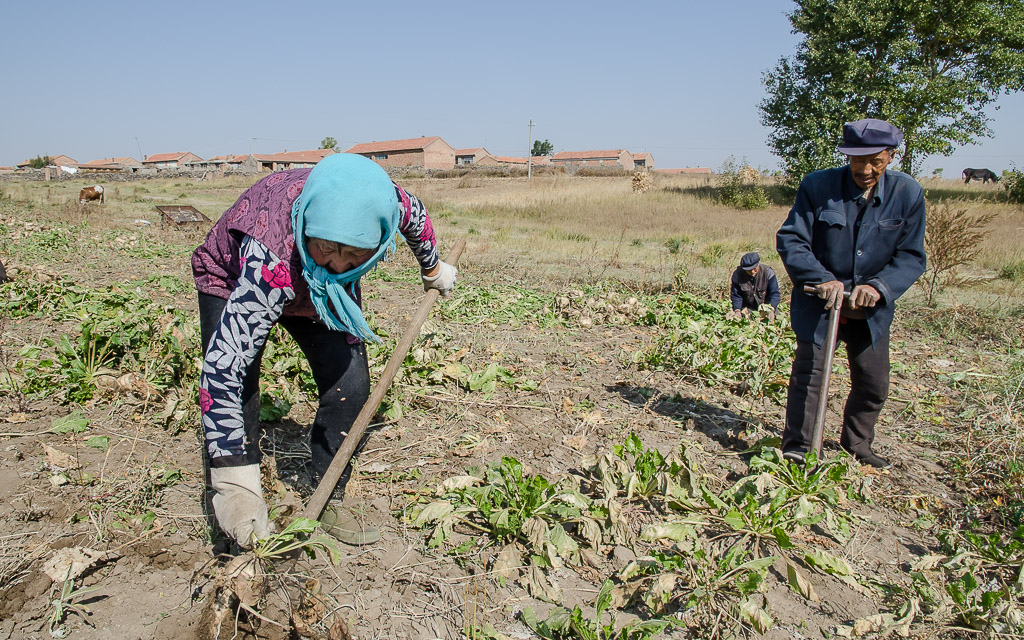
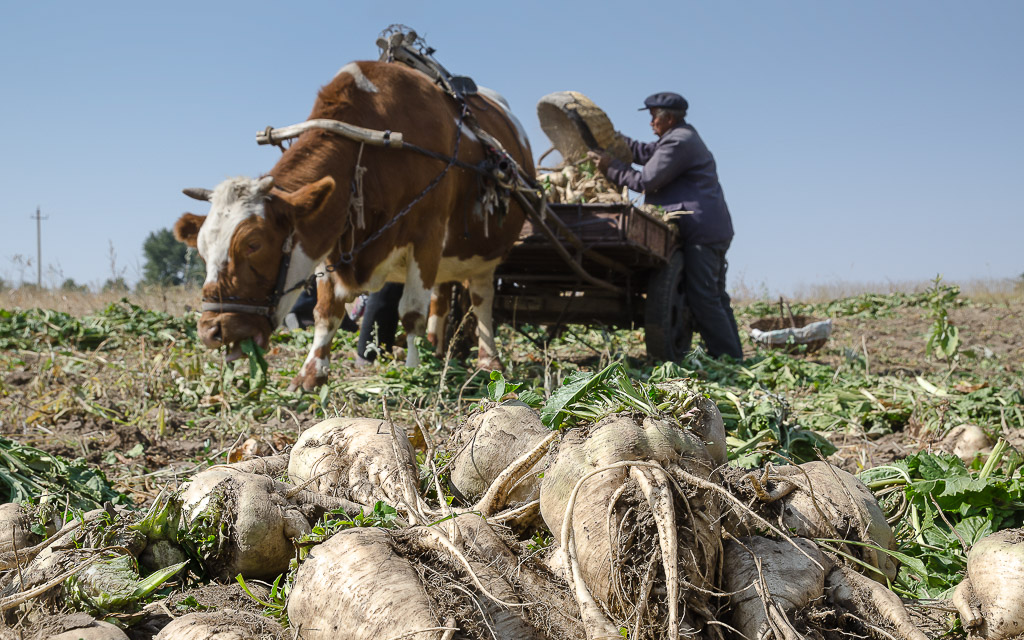
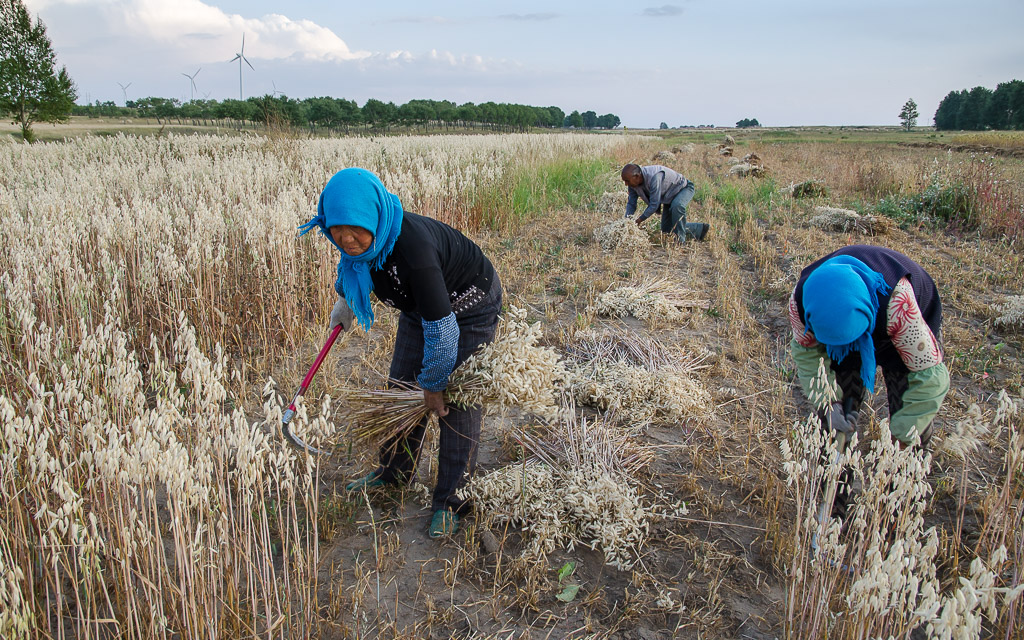
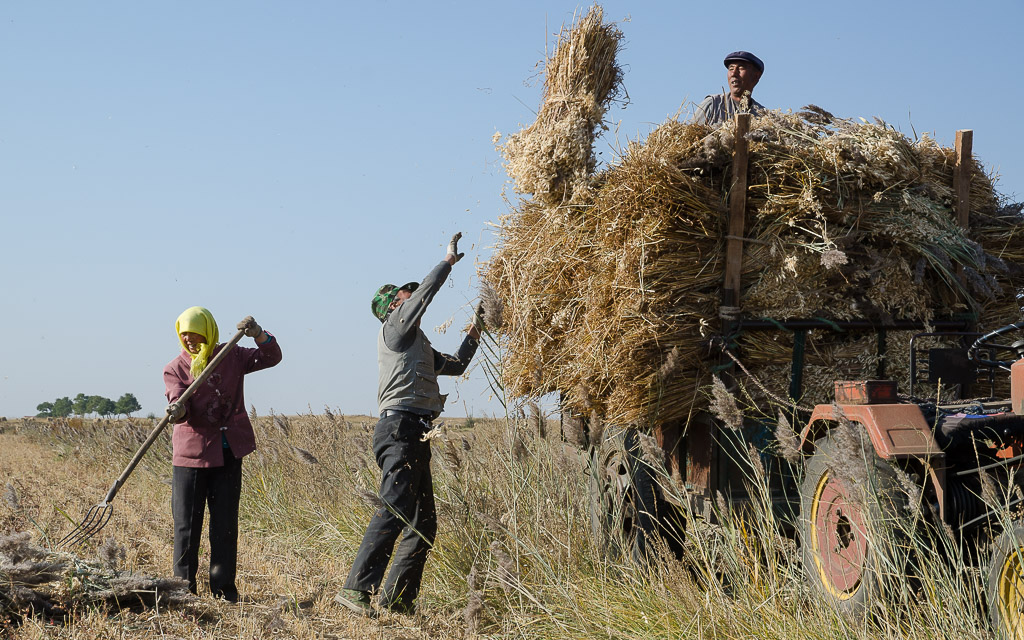
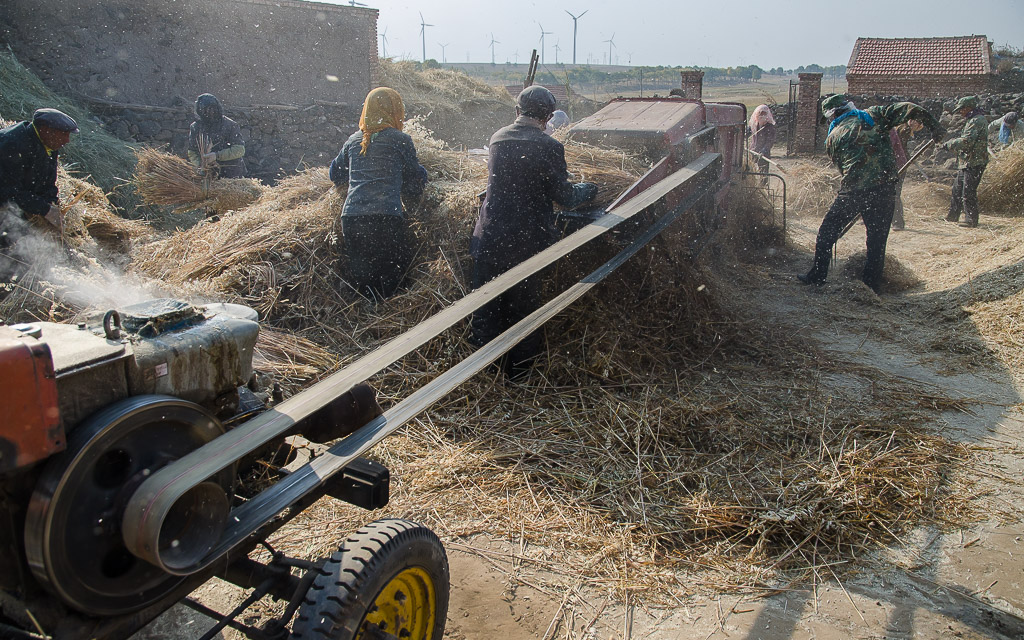
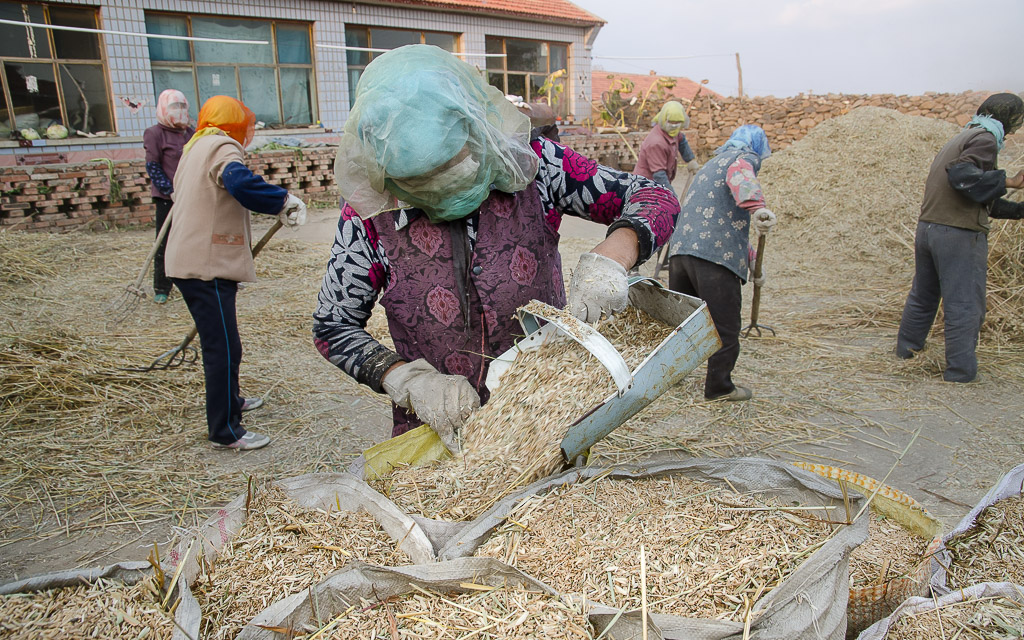
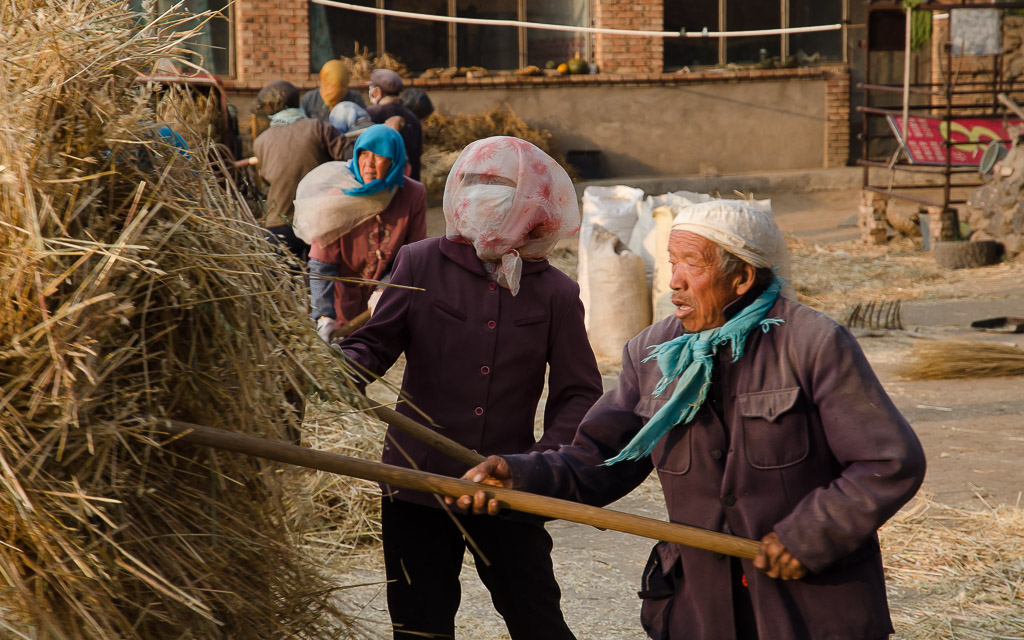
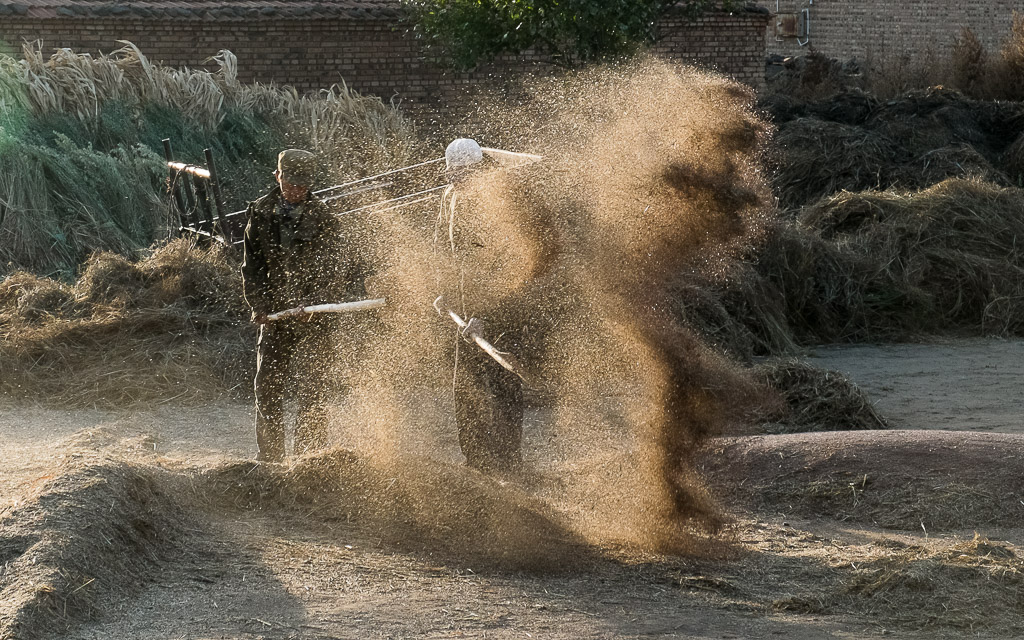

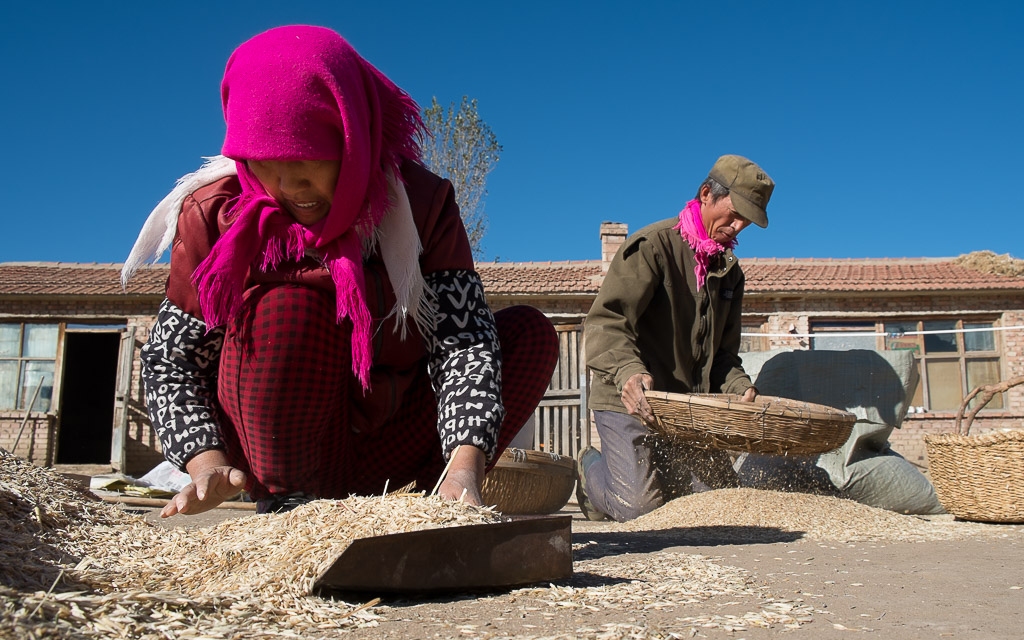
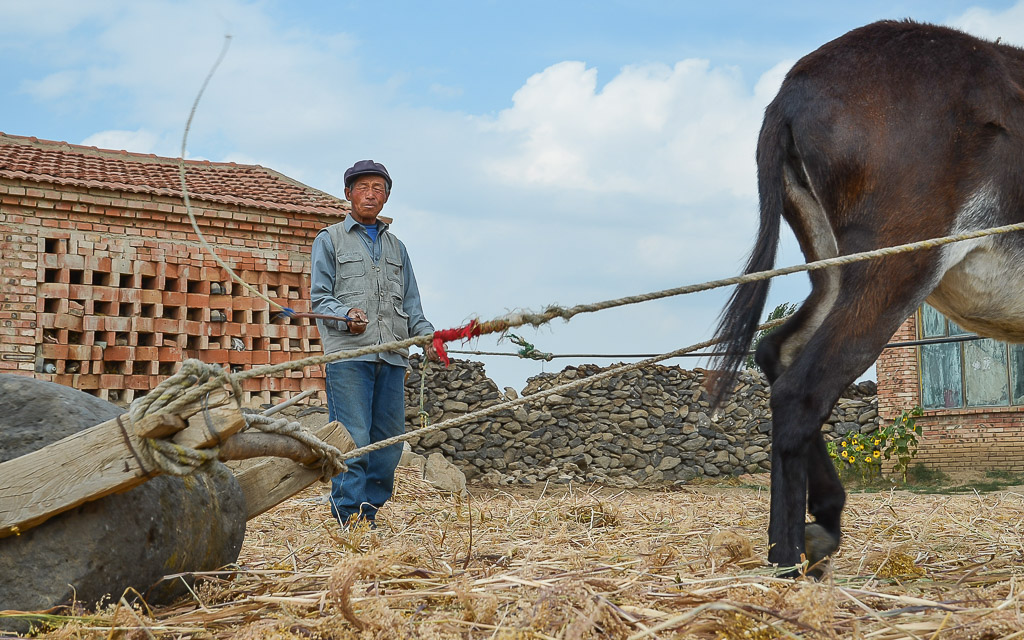
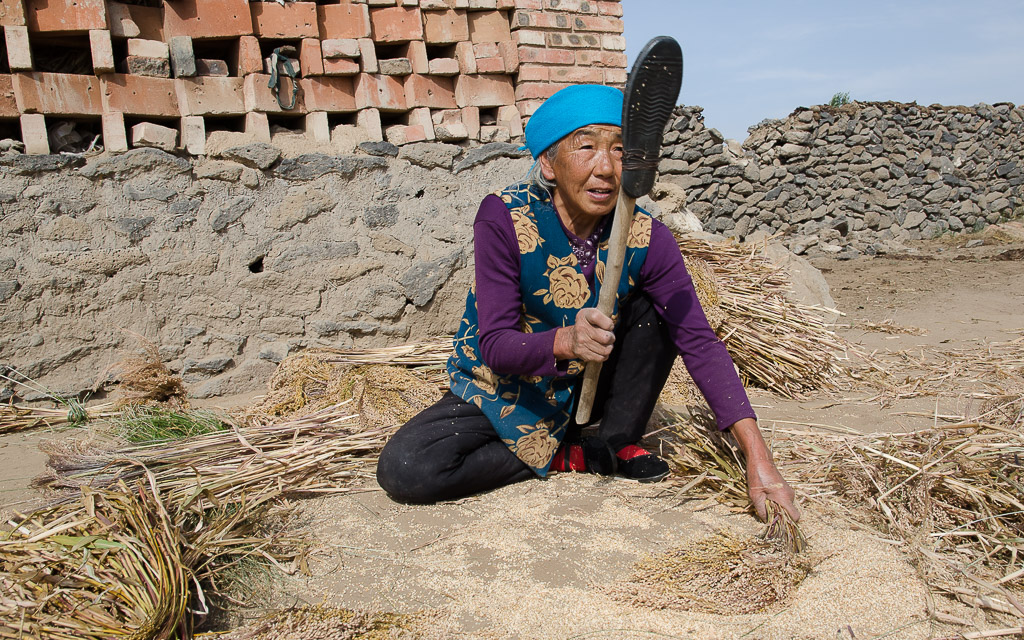
Winter ~ Resting
The long cold season is time for rest and repair. Women clean and sew. Men repair tools and make baskets. Some play mahjong. Everyone sleeps. At Spring Festival the children return. Platters of meat, dumplings and sticky cakes are prepared. Ancestors’ graves are visited and firecrackers lit. Too soon the children go back to their lives, and the parents are left behind, waiting to plant again.
